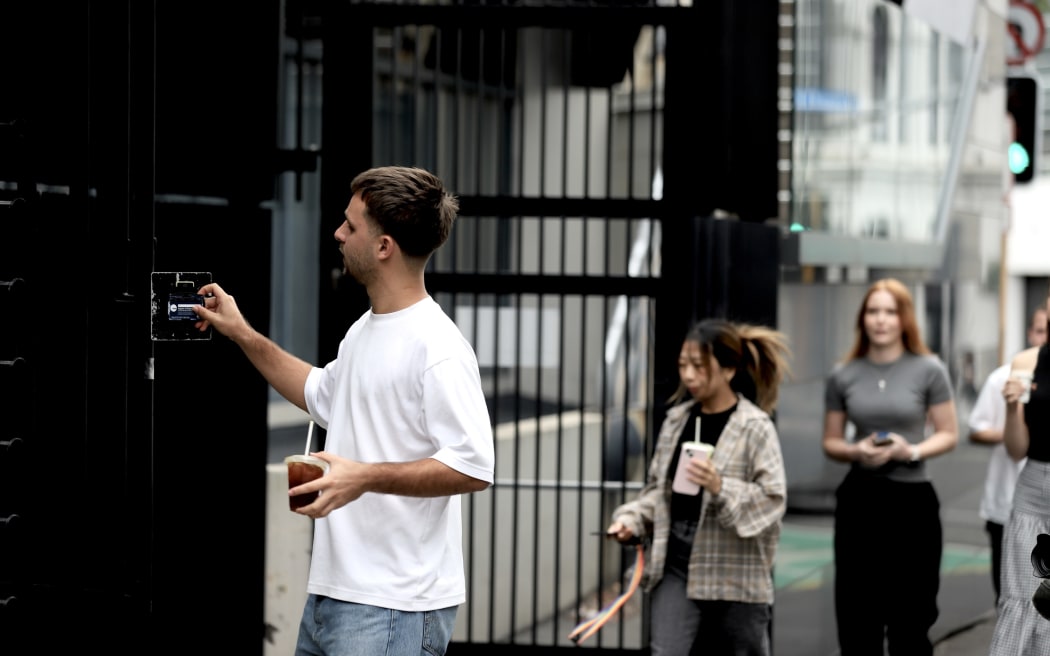
… while Lord Sydenham warned: “What we have done, by concessions not to the Jewish people but to a Zionist extreme section, is to start a running sore in the East, and no-one can tell how far that sore will extend.”
It extends all the way to this horror-show 106 years later.
What the latest phase of the Palestine-Israel struggle teaches us is that UK and other Western media are determined to bully anyone with pro-Palestine views into condemning Hamas as terrorists.
Even the Palestinian ambassador to Britain, Husam Zomlot, was cruelly treated in this way by a BBC interviewer only hours after several of the poor man’s family had been indiscriminately killed in an Israeli revenge attack.
And political leaders, acting like the Zionist Inquisition, are threatening anyone who voices criticism of Israel with expulsion from their party.
Even the BBC has been pressured by the Government’s culture secretary, Lucy Frazer, to call Hamas “terrorists” instead of “militants”. The BBC (so far) has resisted her silliness. Ms Frazer is Jewish and served an internship with the Israeli Ministry of Justice.
And while our Government was projecting an image of the Israeli flag onto the front of 10 Downing Street to emphasise solidarity with the apartheid regime our home secretary, Suella Braverman, was threatening Palestinian flag wavers with prosecution.
Our monarch King Charles III has graciously favoured us with a royal opinion. “His Majesty is appalled by and condemns the barbaric acts of terrorism in Israel,” a palace spokesperson said. And a spokes for Prince William and his wife, Kate, said they were “profoundly distressed by the devastating events that have unfolded in the past days. The horrors inflicted by Hamas’ terrorist attack upon Israel are appalling; they utterly condemn them. As Israel exercises its right of self-defence, all Israelis and Palestinians will continue to be stalked by grief, fear and anger in the time to come.” No mention of the “barbaric” day-to-day terror tactics by Israel which led up to the present crisis. Or the Palestinians’ right of self-defence.
A response to these attempts to humiliate and punish could simply be: “and when did you last condemn Israel for its 75 years of atrocities?” Or “if Hamas committed war crimes why is Israel responding with even bigger war crimes?”
The crisis has brought from the US an unforgettably half-witted speech which conjured up the priceless image of Biden supergluing himself to Netanyahu’s backside in a pathetic show of undying unity.
And after all the nonsense uttered in high places sincere thanks go to Moeen Ali, the England cricket vice-captain, who posted on social media a quote from Malcolm X: “If you’re not careful the newspapers will have you hating the people who are being oppressed and loving the people who are doing the oppressing.” Sadly it has already happened.
So what exactly is driving our Establishment élite to defend and revere a criminal regime whose inhumane policies disgust ordinary folk?
Who started it all?
Should we go back 106 years and pin it on Balfour? Or 75 years when Zionist militias rampaged through Palestine massacring, pillaging and driving local residents from their homes as they pursued ‘Plan Dalet’, their ethnic cleansing blueprint for a violent and bloody takeover of the Holy Land? Or 2006 when Israel (backed by US and UK) began the siege of Gaza after Hamas won the 2006 elections fair and square according to international observers.
It helps to understand a little of the earlier history too. There was a Jewish state in the Holy Land some 3,000 years ago, but the Canaanites and Philistines were there first. The Jews, one of several invading groups, left and returned several times, and were expelled by the Roman occupation in 70AD and again in 135AD. Since the 7th century Palestine has been mainly Arabic, coming under Ottoman rule in 1516.
During the First World War the country was ‘liberated’ from the Turkish Ottomans after the Allied Powers, in correspondence between Sir Henry McMahon and Sharif Hussein ibn Ali of Mecca in 1915, promised independence to Arab leaders in return for their help in defeating Germany’s ally, Turkey. However, a new Jewish political movement called Zionism was finding favour among the ruling élite in London, and the British Government was persuaded by the Zionists’ chief spokesman, Chaim Weizman, to surrender Palestine for their new Jewish homeland. Hardly a thought, it seems, was given to the earlier pledge to the Arabs, who had occupied and owned the land for 1,500 years – longer than the Jews ever did.
The Zionists, fuelled by the notion that an ancient Biblical prophecy gave them the title deeds, aimed to push the Arabs out by populating the area with millions of Eastern European Jews. They had already set up farm communities and founded a new city, Tel Aviv, but by 1914 Jews still numbered only 85,000 to the Arabs’ 615,000.
The infamous Balfour Declaration of 1917 – actually a letter from the British foreign secretary, Lord Balfour, to the most senior Jew in England, Lord Rothschild – pledged assistance for the Zionist cause with no regard for the consequences to the native majority.
Calling itself a “declaration of sympathy with Jewish Zionist aspirations”, it said:
His Majesty’s Government view with favour the establishment in Palestine of a national home for the Jewish people, and will use their best endeavours to facilitate the achievement of this object, it being clearly understood that nothing shall be done which may prejudice the civil and religious rights of existing and non-Jewish communities…
Balfour, a Zionist convert and arrogant with it, wrote: “In Palestine we do not propose even to go through the form of consulting the wishes of the present inhabitants of the country. The four powers are committed to Zionism and Zionism, be it right or wrong, good or bad, is rooted in age-long tradition, in present needs, in future hopes, of far profounder import than the desires and prejudices of the 700,000 Arabs who now occupy that land.”
There was opposition, of course. Lord Sydenham warned: “The harm done by dumping down an alien population upon an Arab country may never be remedied. What we have done, by concessions not to the Jewish people but to a Zionist extreme section, is to start a running sore in the East, and no-one can tell how far that sore will extend.”
And Lord Edwin Montagu, the only Jew in the Cabinet, was strongly opposed to the whole idea and to Zionism itself, which he called “a mischievous political creed”. He wrote to his Cabinet colleagues:
…I assume that it means that Mahommedans [Muslims] and Christians are to make way for the Jews and that the Jews should be put in all positions of preference and should be peculiarly associated with Palestine in the same way that England is with the English or France with the French, that Turks and other Mahommedans in Palestine will be regarded as foreigners, just in the same way as Jews will hereafter be treated as foreigners in every country but Palestine. Perhaps also citizenship must be granted only as a result of a religious test.
Nevertheless his Zionist cousin Herbert Samuel was appointed the first High Commissioner of the British Mandate of Palestine, a choice that showed impartiality was never a priority.
The American King-Crane Commission of 1919 thought it a gross violation of principle. “No British officers consulted by the Commissioners believed that the Zionist programme could be carried out except by force of arms. That, of itself, is evidence of a strong sense of the injustice of the Zionist programme.”
There were other reasons why the British were courting disaster. A secret deal, called the Sykes-Picot Agreement, had been concluded in 1916 between France and Britain, in consultation with Russia, to re-draw the map of the Middle Eastern territories won from Turkey. Britain was to take Jordan, Iraq and Haifa. The area now referred to as Palestine was declared an international zone.
The Sykes-Picot Agreement, the Balfour Declaration and the promises made earlier in the McMahon-Hussein letters all cut across each other. It seems to have been a case of the left hand not knowing what the right was doing in the confusion of war.
After the Russian Revolution of 1917 Lenin released a copy of the confidential Sykes-Picot Agreement into the public domain, sowing seeds of distrust among the Arabs. Thus the unfolding story had all the makings of a major tragedy.
And now another spanner has been tossed into the works. Law expert Dr Ralph Wilde argues that Article 22 of the 1923 League of Nations ‘Mandate Agreement’ for Palestine required provisional independence to be conferred on Palestine and that this could not be lawfully bypassed. Britain’s failure, as the Mandated power, to comply was a violation of international law then with ongoing consequences now, and is therefore a basis for action today.
Article 22 says that those colonies and territories which, as a consequence of World War 1, ceased to be under the sovereignty of the States which formerly governed them and are not yet able to stand by themselves should come under the tutelage of “advanced nations who by reason of their resources, their experience or their geographical position can best be exercised by them as Mandatories on behalf of the League…. Certain communities formerly belonging to the Turkish Empire have reached a stage of development where their existence as independent nations can be provisionally recognizedsubject to the rendering of administrative advice and assistance by a Mandatoryuntil such time as they are able to stand alone.”
So Britain’s underhandedness is exposed again.
And who started the Palestine-Israel war that inevitably broke out 25 years later? Read the history – it’s all documented. And no, they don’t teach it in schools, it’s far too embarrassing for this ‘great power’.
The slaughter has been horrific
Today, propaganda would have us believe that Israelis have continuously suffered at the hands of Palestinian terrorists. But it’s actually the other way around. Don’t take my word for it, just look at the figures supplied by Israeli NGO B’Tselem which was established in 1989 by a group of Israeli lawyers, doctors and academics to document human rights violations in the Israeli-occupied Palestinian territories and combat any denial that such violations happened. The previous year had seen the First Intifada (uprising) in which Israeli forces killed 311 Palestinians, 53 of whom were under the age of 17.
The figures compiled by B’Tselem run from 29 September 2000 (the start of the Second Intifada) to 27 September 2023.
- Palestinians killed by Israeli forces 10,555
- Palestinians killed by Israeli civilians 96
- Palestinians Killed by unknowns 16
- Total 10,667
- Israeli forces killed by Palestinians 449
- Israeli civilians killed by Palestinians 881
- Total 1,330
So Israelis are far more proficient at killing fellow humans and they’ve been killing Palestinians at the rate of 8:1. Worse still is the butchery of children. The figures show 2,270 Palestinian children killed versus 145 Israeli children, a ratio of nearly 16:1. And when it comes to women it’s 656 Palestinians to 261 Israelis, about 2.5:1.
These statistics are available to everyone. What’s extraordinary is the large number of senior politicians who, with one voice it seems, condemn Hamas and sympathise with Israel. Why would they rush to protect the feelings of an apartheid state that has been brutally oppressing, murdering, dispossessing and generally making life unbearable for Palestinian in their own homeland?
That said, nobody is approving Hamas’s methods (if they have been reported accurately) which may have alienated a lot of otherwise sympathetic supporters and damaged the Palestinian cause. But the facts show that what they did a few days ago was nothing compared to the Israelis’ 75 years of terror and oppression.
Israel is notorious for its disinformation, or ‘hasbara’, and Hamas say their fighters have been targeting Israeli military and security posts and bases – all of which are legitimate targets – and seeking to avoid hurting civilians. They call on Western mainstream media “to seek both truth and accuracy in reporting on the ongoing Israeli aggression against the besieged Gaza Strip”.
But this is an era of false flags, deception and plain bad journalism, as we’ve seen from Ukraine, so mainstream media cannot be trusted. I’ve watched the media eagerly interviewing Israeli families who live close to the Gaza border and commiserating their loss. But, on reflection, what do you think of people who have spent years nextdoor to a security fence on the other side of which their government has cruelly incarcerated another people for 17 years, denying them essential power supplies, water, food, medicines, goods, and freedom of movement, while bombing them regularly in a diabolical policy called “mowing the grass”, and even limiting access to their own coastal waters and blocking access to their marine gasfield…. and don’t seem in the least concerned that such hideous crimes are perpetrated in their name? How innocent are they?
Self-defence?
Then there’s the endlessly repeated claim the Israel has a right to defend itself. But Israel is illegally occupying the Palestinians’ homeland and using military force to maintain its grip and to tightly control every aspect of the Palestinians’ increasingly miserable lives. As for Israel’s armed squatters, they have been implanted outside their own territory and are classified as war criminals. Like Israel’s army of ongoing occupation they are the aggressors and have no right of self-defence. The Palestinians on the other hand, being subjected to an illegal military occupation, are the ones with the right under international law to defend themselves.
What gives them that right is United Nations Resolution 37/43 of 3 December 1982 which is concerned with “the universal realization of the right of peoples to self-determination and of the speedy granting of independence to colonial countries and peoples for the effective guarantee and observance of human rights…. Considering that the denial of the inalienable rights of the Palestinian people to self-determination, sovereignty, independence and return to Palestine and the repeated acts of aggression by Israel against the people of the region constitute a serious threat to international peace and security, [the Resolution]
1. Calls upon all States to implement fully and faithfully all the resolutions of the United Nations regarding the exercise of the right to self-determination and independence by peoples under colonial and foreign domination;
2. Reaffirms the legitimacy of the struggle of peoples for their independence, territorial integrity, national unity and liberation from colonial domination, apartheid and foreign occupation by all available means, including armed struggle.”
It goes on to strongly condemn “the constant and deliberate violations of the fundamental rights of the Palestinian people, as well as the expansionist activities of Israel in the Middle East, which constitute an obstacle to the achievement of self-determination and independence by the Palestinian people and a threat to peace and stability in the region.”
That we are still waiting after 40+ years for these fine principles to be implemented shows how useless the UN really is and how little the major powers value international law unless it happens to suit their own often questionable purposes.
Jewish voices
JVP (Jewish Voice for Peace) has sent me their latest statement:
We wholeheartedly agree with leading Palestinian rights groups: the massacres committed by Hamas against Israeli civilians are horrific war crimes. There is no justification in international law for the indiscriminate killing of civilians or the holding of civilian hostages.
And now, horrifyingly, the Israeli and American governments are weaponizing these deaths to fuel a genocidal war against Palestinians in Gaza, pledging to “open the gates of hell.” This war is a continuation of the Nakba, when in 1948, tens of thousands of Palestinians fleeing violence sought refuge in Gaza. It’s a continuation of 75 years of Israeli occupation and apartheid.
Already this week, over 1,000 Palestinians in Gaza have been killed. The Israeli government has wrought complete and total devastation on Palestinians across Gaza, attacking hospitals, schools, mosques, marketplaces, and apartment buildings.
As we write, the Israeli government has shut off all electricity to Gaza. Hospitals cannot save lives, the internet will collapse, people will have no phones to communicate with the outside world, and drinking water for two million people will run out. Gaza will be plunged into darkness as Israel turns its neighborhoods to rubble. Still worse, Israel has openly stated an intention to commit mass atrocities and even genocide, with Prime Minister Netanyahu saying the Israeli response will “reverberate for generations.
And right now, the U.S. government is enabling the Israeli government’s atrocities, sending weapons, moving U.S. warships into proximity and sending U.S.-made munitions, and pledging blanket support and international cover for any actions taken by the Israeli government. Furthermore, the U.S. government officials are spreading racist, hateful, and incendiary rhetoric that will fuel mass atrocities and genocide.
The loss of Israeli lives is being used by our government to justify the rush to genocide, to provide moral cover for the immoral push for more weapons and more death. Palestinians are being dehumanized by our own government, by the media, by far too many U.S. Jewish institutions. Defense Minister Yoav Gallant said that Israel is “fighting human animals” and should “act accordingly,” As Jews, we know what happens when people are called animals.
We can and we must stop this. Never again means never again — for anyone. [bold added]
Thank you JVP. Amen to that.
This post was originally published on Dissident Voice.








 (@OwenPaintbrush)
(@OwenPaintbrush) 


 (@Haggis_UK)
(@Haggis_UK) 


 (@marktudball)
(@marktudball) 



 (@curtislauraj)
(@curtislauraj) 





 Save Our NHS (@hewitson10)
Save Our NHS (@hewitson10) 








 (@mrdavemacleod)
(@mrdavemacleod) 

 (@mettlesome_teri)
(@mettlesome_teri) 



